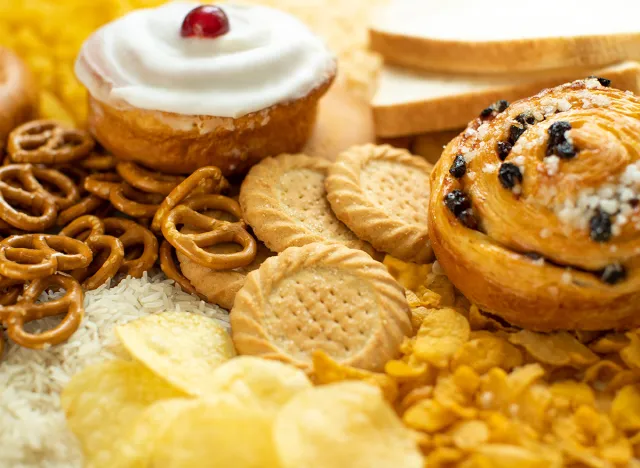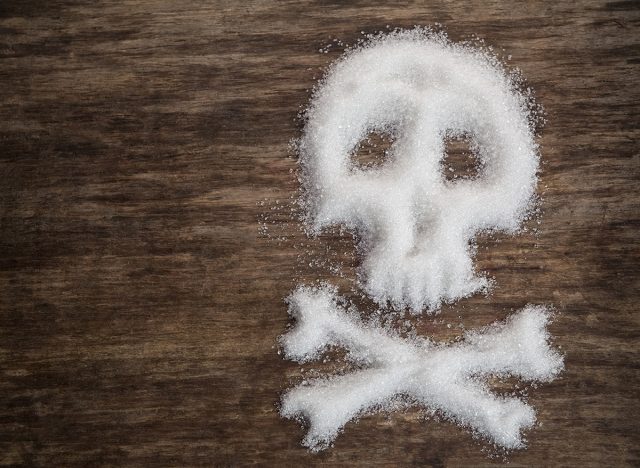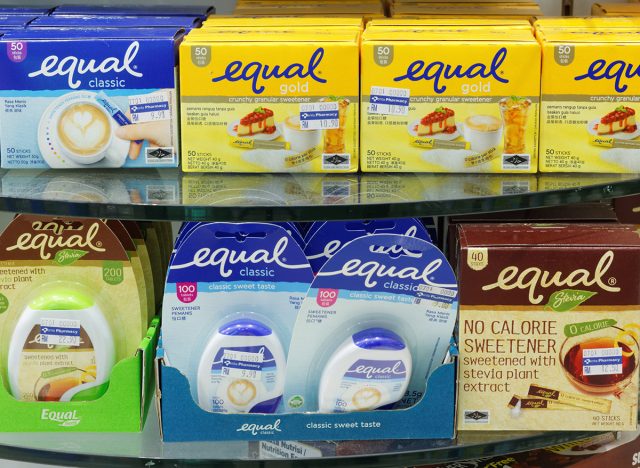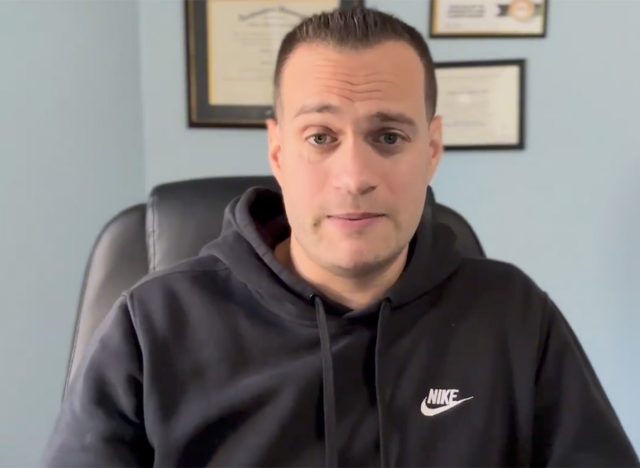4 "Foods to Avoid" You Don't Have to Avoid, Says Diet Expert

You've probably seen articles about "foods to avoid" if you're trying to gain muscle or lose weight—including on this website. Some advice is so strict, that these products feel almost banned from any healthy meal plan.
But is that approach too broad and under-researched? "The 'foods to avoid' question is a very nuanced question without the context behind it. As a dietitian, I don't typically advise patients to just avoid foods just because," says Sarah Schlichter, MPH, RDN of Bucket List Tummy. "Offering blanket recommendations of foods to avoid is not helpful for people without considering their budget, access to food, food and cultural preferences, time available for cooking, etc. Therefore, people should avoid foods they don't like, or that they are allergic to. But, in general, nearly all foods can fit in a person's diet/lifestyle, even if it takes some practice and understanding how to make a balanced plate work for them."
With that in mind, we talked to Derek Lipton, MS, RD, CSSD, CSCC, a Registered Dietitian and Sports Nutrition Consultant for Bodybuilding Reviews. He says certain big-name "healthy eating" experts—one in particular—spread misinformation and are fearmongers, but most of what some say isn't backed by science and/or is over-exaggerated. Here are some he says are A-OK in moderation.
Processed Foods Can Be Included in Your Diet Mindfully

"Processed foods are often demonized because they are associated with weight gain and poor health. Processed foods tend to be higher in calories, lower in nutrients, and less filling — so it's easy to over-consume them and gain weight; however, a balanced diet can easily include these if you're mindful of your calories and make sure to focus on mostly whole foods," says Lipton.
Related: Krissy Cela Shares Her Workout For a Chiseled Midsection
Seed Oils Aren't Inherently Dangerous

"Seed/refined oils are largely demonized due to observational research and animal studies; however, human trials have shown time and time again that there is actually no inherent harm from these oils and are actually BETTER for you than animal fats (PMID: 33127255, PMID: 33762150, PMID: 30809634, PMID: 30006369). The issue is quantity. Seed oils are much cheaper than olive oil or butter, so they get used more — especially in fried foods and packaged products. So over time, we've seen a correlation between seed oil intake and obesity + other health problems — but this is due to excess caloric intake and resulting weight gain, not the inherent nature of the oils themselves (as the aforementioned studies demonstrate)," says Lipton.
High Fructose Corn Syrup is Like Sugar, Dangerous When Abused

"The negative image of HFCS is similar to that of seed oils. As HFCS intake increased, so did obesity and related health problems. Once again, it's because HFCS is much cheaper than natural sugar, so companies have been able to use more of it in their products — resulting in increased calories consumed. In fact, the body cannot tell the difference between sucrose (table sugar) and HFCS — it's simply just the lower cost of HFCS has enabled higher usage," says Lipton.
Artificial Sweeteners Can Help Reduce Caloric Intake

"Artificial sweeteners are another fun one, because people will cite studies showing the link between these and cancer or impaired gut health — however, these studies were done in RATS. The dose they used in these studies would be equivalent to drinking over 40 cans of diet soda PER DAY. However, no studies in humans have shown any detrimental impact from using artificial sweeteners. In fact, these artificial sweeteners are great way to reduce caloric intake in those that typically like sweetened beverages," says Lipton.
Related: I Lost 40 Pounds By Eating These 8 Foods
Final Word From the Expert

"Overall, a lot of demonized foods and fear-mongering comes from misunderstood research or animal studies and is usually blown out of proportion. When looking at human control trials, these foods can all be consumed within moderation and not present any negative on health, as long as you stay within your caloric needs," says Lipton.
💪🔥Body Booster: If you like sweetened drinks, consider switching to artificial sweeteners. It's an effective way to cut down on calories.




